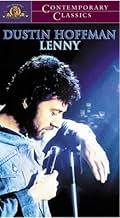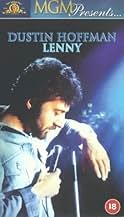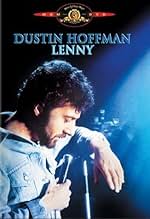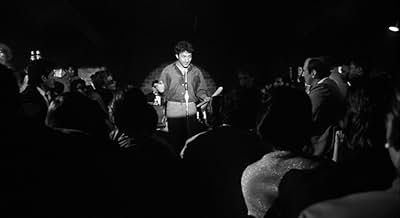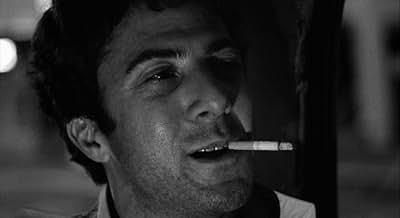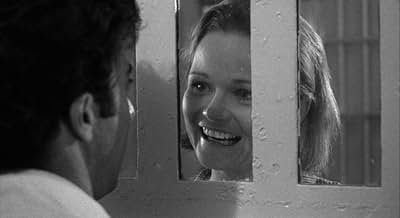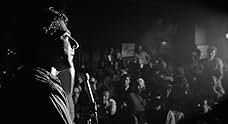The story of acerbic 1960s comic Lenny Bruce, whose groundbreaking, no-holds-barred style and social commentary was often deemed by the Establishment as too obscene for the public.The story of acerbic 1960s comic Lenny Bruce, whose groundbreaking, no-holds-barred style and social commentary was often deemed by the Establishment as too obscene for the public.The story of acerbic 1960s comic Lenny Bruce, whose groundbreaking, no-holds-barred style and social commentary was often deemed by the Establishment as too obscene for the public.
- Nominated for 6 Oscars
- 7 wins & 17 nominations total
- Girl
- (as Kathie Witt)
- Hawaiian Judge
- (as Monroe Meyers)
Featured reviews
Lenny starts out trying to do bits like any other comic of the day - the early 50s, and he fails at it. He then starts to do more commentary on the human condition as stand-up, and that's where he hits his mark. Especially at a time of great societal change like the late 50s/early 60s. Today, that's the stuff of pretty much all stand-up comics, so it's hard to appreciate just how ground-breaking it was at the time. It's like trying to appreciate how ground-breaking "Citizen Kane" was in 1941. It's still an interesting film, but it's just impossible to appreciate it as next-level filmmaking like it was at the time.
My big takeaway was that director Bob Fosse really knows how to tell a story with editing. There are sequences in all of his movies where I would say, 'Wow,' just to an editing choice. Lenny impressed me the most in that regard. As for Valerie Perrine as Lenny's wife - I think that had she been up for Best Supporting Actress Oscar instead of Best Actress, she would have won that category. She was striking as a woman who went along with the choices that her husband made for the both of them with not much if any input from her, and later got blamed by him and society for that matter for going along with those choices. In that regard, she was a more conventional wife of the 1950s than you would think.
When seventies cinema was good, it was really, really good, and it is, at least acting-wise, only rarely rivaled in contemporary productions. As a character study and also as a snap shot of an era, 'Lenny' is essential viewing. 8 stars out of 10.
In case you're interested in more underrated masterpieces, here's some of my favorites:
imdb.com/list/ls070242495
It is a fascinating film though, in its own way. Fosse uses a documentary-like approach, complete with black and white photography and a narrative device in which we see Bruce's long-suffering love (played heartbreakingly by Valerie Perrine, Lex Luthor's bikini-clad girlfriend in "Superman" [1978]) telling Bruce's story to a filmmaker while the actual events themselves are played out as flashbacks. Fosse was fond of this confessional type of storytelling and would use it again in "All That Jazz" (1979). Dustin Hoffman is simply sensational as Bruce; he utterly disappears into this caustic character until no trace of Hoffman the actor is left. Technically, everything about the film is highly accomplished, but it's so desolately grim as to be off putting.
Grade: B+
Did you know
- TriviaThe scene in which Lenny Bruce does his act in a raincoat, near the movie's end, came from a Lenny Bruce show that a student tape-recorded and sent to Dustin Hoffman. Bruce's lines are directly from the tape.
- GoofsDuring the movie's opening monologue, Lenny says that it's 1964 and then references Jerry Lewis's MDA Telethon, which debuted in 1966.
- Quotes
Lenny Bruce: What's the worst thing you can say to anybody? ''Fuck you, mister!'' That's really weird, because if l wanted to hurt you, l should say, ''Unfuck you, mister'' Because ''fuck you'' is really nice, man.
- ConnectionsFeatured in Precious Images (1986)
- How long is Lenny?Powered by Alexa
Details
Box office
- Budget
- $2,700,000 (estimated)
- Runtime
- 1h 51m(111 min)
- Color
- Sound mix
- Aspect ratio
- 1.85 : 1


